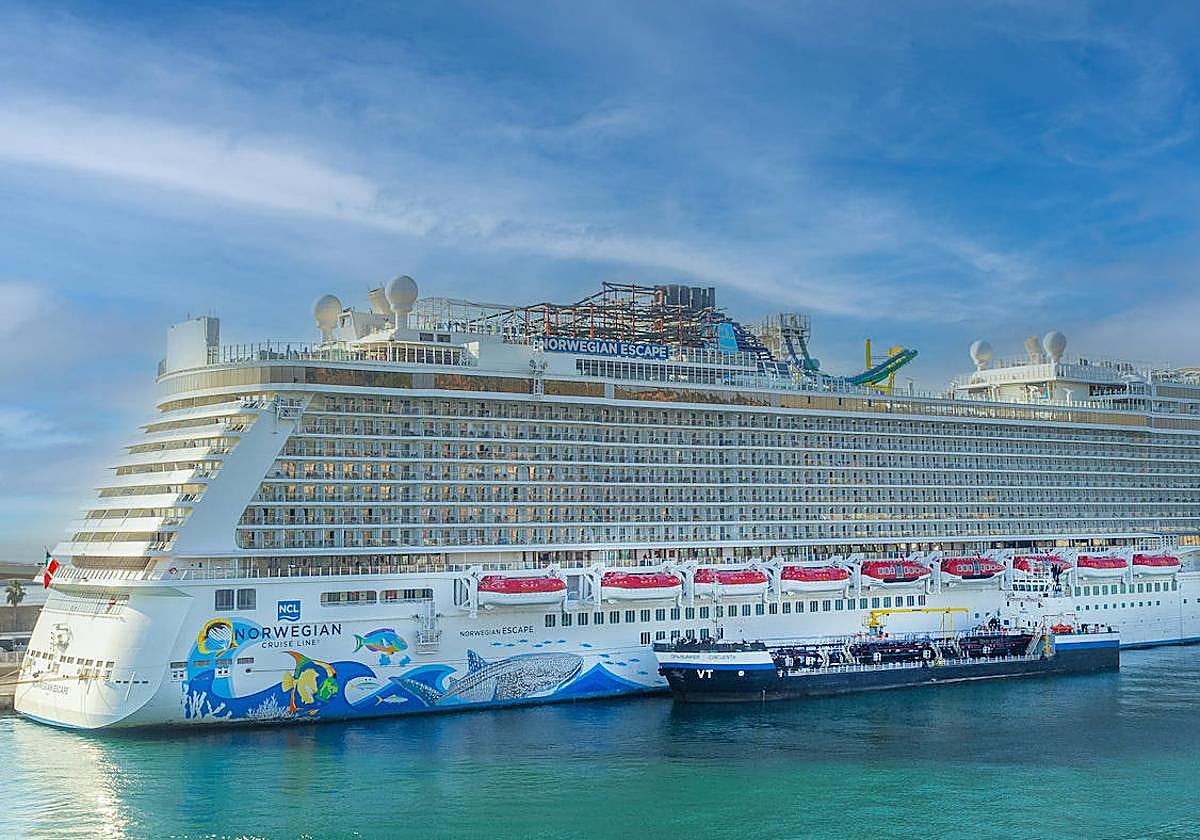Cepsa starts supplying biofuels to Norwegian Cruise Line Holdings at Barcelona port
The energy company has the capacity to supply these sustainable fuels to the cruise industry on a regular basis in the Spanish ports in which it operates
COLPISA
Friday, 30 August 2024, 17:54
Spanish energy firm Cepsa has made its first direct supply of second-generation biofuels to the cruise industry at the Port of Barcelona. In addition, the company, which is the leading supplier of energy for maritime transport in Spain, has confirmed new supplies for the coming months, with biofuels available on a regular basis in the ports of Barcelona and Algeciras.
The fuel supplied in Barcelona contains a 24% sustainable component, which will avoid the emission of approximately 3000 tonnes of CO2, equivalent to planting 200,000 trees. This biofuel has been produced from used cooking oils, which promotes the circular economy.
Operated by Norwegian Cruise Line Holdings (NCLH), the 325-metre-long Norwegian Escape, received its first supply at the end of July and is scheduled to be supplied with biofuel throughout the current European Union cruise season. Cepsa also supplied biofuel to two other vessels operated by NCLH, the 223-metre Seven Seas Voyager and the 239-metre Oceania Riviera, in early August.
Second generation biofuels
Cepsa has the capacity to supply these sustainable fuels to the cruise industry on a regular basis in the rest of the Spanish ports in which it operates. Samir Fernandez, director of Marine Fuel Solutions at Cepsa, said: "We are delighted that second generation biofuels are now being harnessed by the cruise sector in its journey towards decarbonisation. Marine fuels can be used on ships without the need to modify their engines, and have a high potential to reduce CO2 emissions compared to conventional fossil fuels, achieving a reduction of up to 90% over their lifecycle, making them an ideal immediate solution."
This development comes at a time when the Cruise Lines International Association (CLIA) is focusing its attention on ensuring that the industry has sufficient access to low-carbon fuels to achieve net zero carbon cruising by 2050. Now that the sector has rebounded significantly after Covid-19, it is essential to facilitate rapid and meaningful decarbonisation.
The International Energy Agency notes that, historically, petroleum-based fuels have met more than 99% of the total energy demand of international shipping. To reach net zero, the sector will need to increase the use of alternative fuels, including biofuels, hydrogen and green ammonia, and renewable electricity.
International objectives
The use of biofuels allows shipping companies to meet the objectives set out by the European Union and the International Maritime Organisation (IMO). In particular, the European Commission's "Fit for 55" package includes "FuelEU Maritime", a legislative initiative that aims to reduce the greenhouse gas emissions intensity of shipping by 2% by 2025, 6% by 2030 and 80% by 2050, compared to 2020 levels, through the use of sustainable fuels.
At the same time, the IMO has updated its strategy to reduce greenhouse gas emissions from shipping, setting ambitious targets that will progressively increase from 20% in 2030 to achieve net zero emissions in 2050, compared to 2008 levels.
Cepsa has a diverse portfolio of solutions to facilitate the decarbonisation of maritime transport. Apart from biofuels, it includes products such as liquefied natural gas (LNG). In addition, Cepsa plans to supply synthetic marine fuels in the future, such as green ammonia or methanol, which will be produced in the Andalusian Green Hydrogen Valley, one of the largest green hydrogen projects in Europe.
